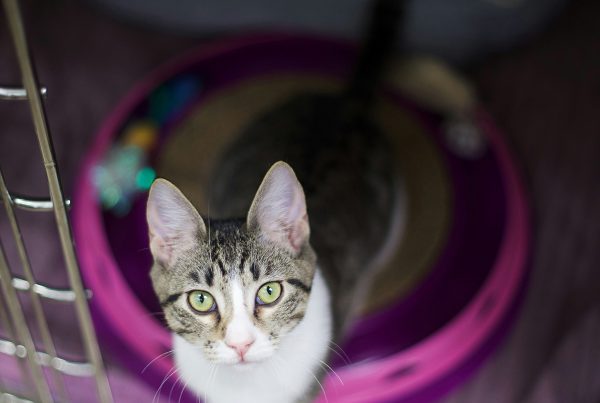Last November, Laurie George became the first female CEO in the 85-year history of United Way of Palm Beach County. But having the single mother of three at the helm has meant more to the organization that supports more than 40 nonprofits in the area than just shattering glass ceilings. Here is more from our interview with George in the May/June issue.

Background: Born in North Dakota, moved to Virginia at age 5; father was a college professor (taught psychology), family moved from University of Virginia to Texas A&M (Laurie went to high school in College Station and went to Texas A&M to get psychology degree; she then went to graduate school at the University of Texas).
On the allure of United Way (she first started there 15 years ago):
“For me, it was getting to know the agencies and people in Palm Beach County working together to create change. I could name so many heroes of mine that are out working day-in and day-out with people who are suffering—and they’re making those lives better. … Intellectually, it’s fascinating to talk to people that have all these different perspectives about the community. To go into the sheriff’s office and say, ‘What do you see from where you sit?’ Then you ask the same question in the educational community. … But at the end of the day, this position just pulls your heart. You go into a child center and see children who, at home, have been through hell and back. Working with people who make sure these children are fed and safe, it gets into your heart. At least once a day, I get those chills from working with such a group.”
What would surprise people about this county, given her perspective of working with so many different entities?
“To have a child be successful on a continuum from birth through high school, it takes so many partners to help in every which way. If you’re born in a Zip code in this county where there is poverty, your chances of success are much less than a child born in a wealthier Zip code because of the resources. And the disparity starts before the child is even born. … As they move through the school system, one child is with a group of kids who are higher performing; the other is not getting stable health care or consistent food, which leads to poor performance in school.
“Third-grade literacy is a predictor of dropping out and going to jail. As kids are falling further and further behind—and living in neighborhoods where there are lots of temptations and exposure to problems—it all [steamrolls].”
“In one of our listening sessions in Belle Glade, a single mom with a middle school child reported how her son is getting harassed by gang members nonstop. He’s trying to stay the path. The mom was crying in the session, begging us to help and give her some quality place to put her child after school.”
What are the “drivers” that allow people to connect to her as a United Way representative?
“There are different points in my life … When I was a child I was in a subsidized child care center, receiving quality childhood education. We were on food stamps at the time; my mom was divorced and working as a nurse and not making much money. My aunt came to stay with us. It was hard, but our needs were met. When I entered kindergarten, I was ready to learn. … There are times in your life when you need a little bit of community support. The right environment, the right support, can make such a difference.”







